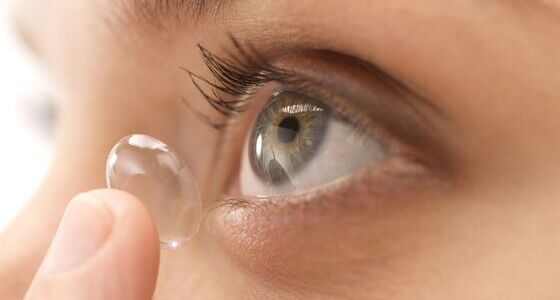Imagine going into cataract surgery with poor vision and coming out with outstanding vision.
Well, thanks to breakthrough intraocular lenses (IOLs), this may not be so far-fetched. [An IOL is an artificial lens placed in a person’s eye to restore vision after cataract surgery. Today, medicine is moving beyond a one-size-fits-all model and is entering an age of more personalized treatment. An example of this growing trend is that doctors can now offer customized lens treatment options to improve people’s vision after cataract surgery. Even those who have worn glasses their entire lives — or are just starting to use readers — have the potential to be free of glasses post cataract surgery.
Developed by Abbott and recently approved by the Food and Drug Administration, the Tecnis Multifocal 1-Piece IOLs (+2.75D and +3.25D) provide individualized options to the more than 20 million people estimated to undergo cataract surgery. These lenses allow people to have a full range of outstanding near, intermediate and far vision that can be customized based on a person’s own vision needs and lifestyle.
“Many of my cataract patients are of working age and have very active lifestyles,” said Tal Raviv, MD, FACS, Medical Director of the Eye Center of New York in Manhattan. “The ability to see all distances — from looking at a smartphone to watching a movie on the big screen — without the need for corrective wear is not only a benefit but a necessity.” Overall, people may not need to wear their glasses for daily tasks.
Cataracts cloud the natural crystalline lens in the eye, and typically progress slowly causing vision loss, and can be potentially blinding if left untreated. Cataract surgery is one of the most common and safest procedures in the U.S. with more than 3 million surgeries expected to be done each year from 2014 to 2016 — and that number is expected to grow as the population ages. In fact, as new technologies become available that can significantly improve vision, today’s boomers are even opting to have the procedure done earlier in life (40’s, 50’s and 60’s) so they can maintain their healthy, active lifestyles.
“I am constantly on my phone or computer and my vision was definitely becoming blurry,” said Vivian Gemelos, Dr. Raviv’s patient. “When I was told I had the option to have my vision corrected at all distances without glasses when my cataract was removed and replaced with this new lens, I jumped at the opportunity. I had one eye done and immediately saw the difference. Even colors are brighter. Now, I can’t wait to have my other eye done.”
For more information, visit abbott.
INDICATIONS: The TECNIS® Multifocal 1-Piece intraocular lenses are indicated for primary implantation for the visual correction of aphakia in adult patients with and without presbyopia in whom a cataractous lens has been removed by phacoemulsification and who desire near, intermediate, and distance vision with increased spectacle independence. The intraocular lenses are intended to be placed in the capsular bag. IMPORTANT SAFETY INFORMATION: No matter what lens you choose, there are risks or problems that can happen with cataract surgery.
The problems could be minor, temporary, or affect your vision permanently. Whereas your use of glasses may decrease, it may come at the cost of some sharpness of your vision. Even with glasses, this loss of sharpness may become worse under poor visibility conditions such as dim light or fog. If your eye is not healthy (including glaucoma), your vision may not be good even after your cataract is removed. In this case, you may not get the full benefit of the multifocal IOL. . There is a chance that your vision with a multifocal IOL may not be good enough to perform very near or detailed “up-close” work without glasses. Multifocal IOL implants may be inadvisable in patients with conditions such macular degeneration, retinal pigment epithelium changes, and glaucoma. CAUTION: Federal law restricts this device to sale by or on the order of a physician.




